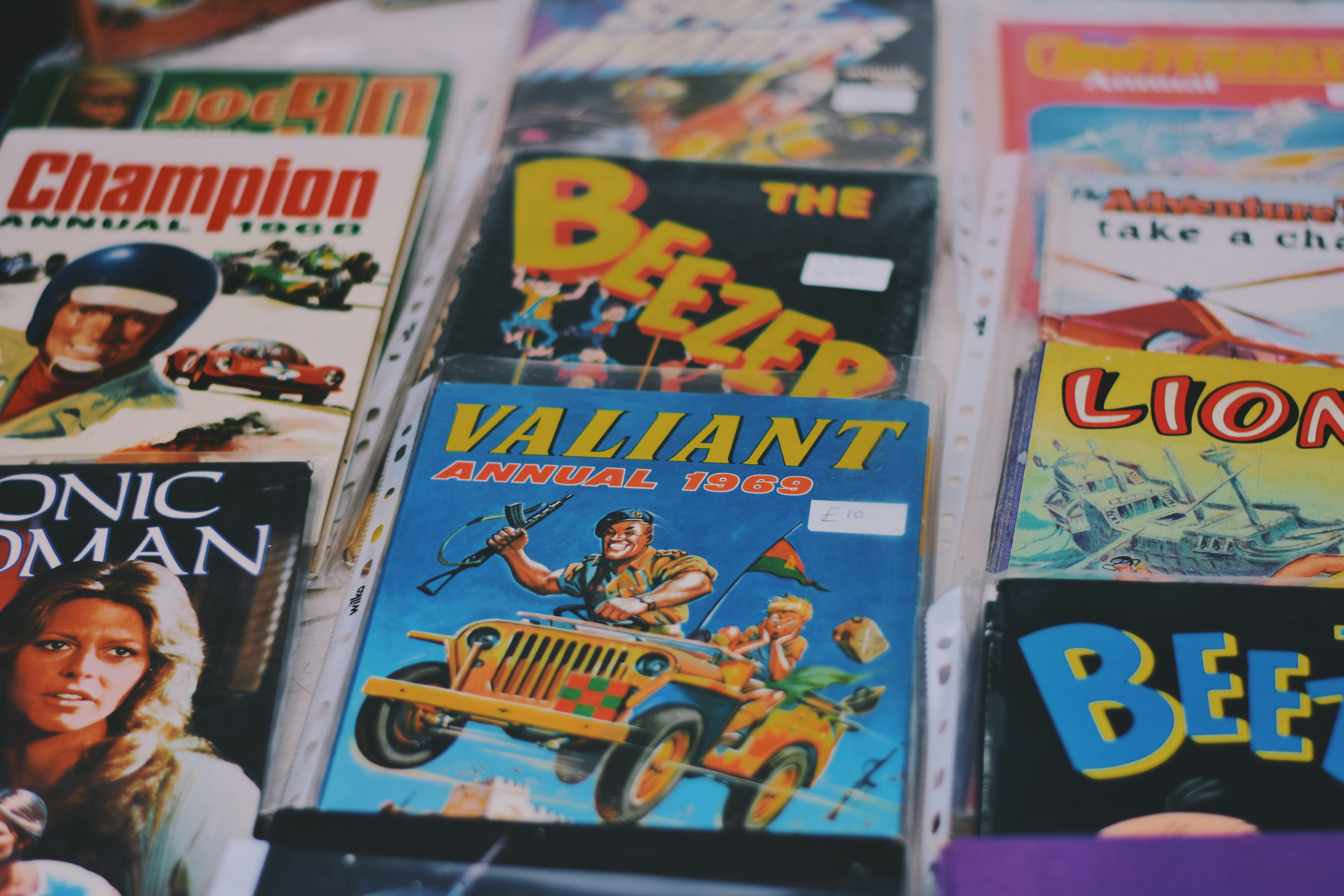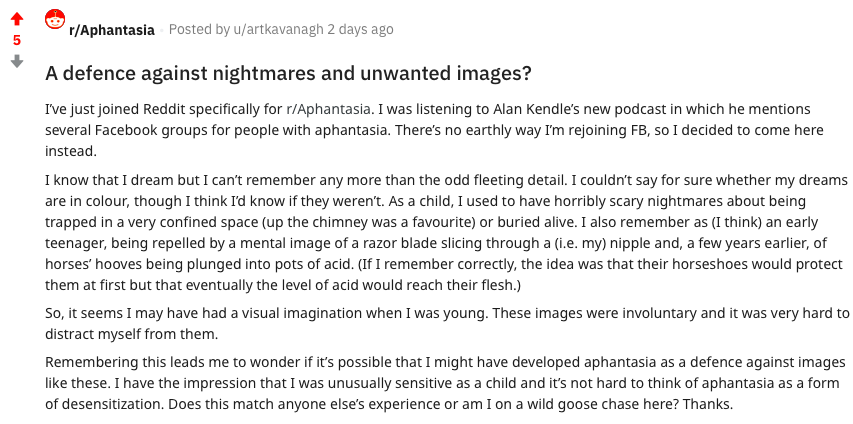
Criticism, fiction and other writing | Aphantasia

Before I knew I had aphantasia, I often joked about the uselessness of infographics and data visualization. I could possibly (but certainly not always) make sense of them while they were right in front of me but they were a perfect example of “out of sight, out of mind”. If I were to retain the information from a chart, I’d need to translate it into some form of narrative. Often, I’d hurriedly mistranslate, and the summary I retained would be inaccurate or incomplete.
Over the past few days, I’ve repeatedly found myself banging up against the notion that I haven’t always been aphantasic, that this is behaviour that I learned at a very young age. Browsing r/Aphantasia on Reddit, I started to think about the condition as possibly a defence against nightmares and/or involuntary but disturbing mental images.

As I say in that post, I believe there was a time (up to about my early teens) when I was sometimes affected by graphically disturbing images. I sometimes have a sense that I’m fortunate they haven’t returned, and that I’m somehow holding them at bay.
It’s similar with nightmares. The central character in my “novel-length fiction”, A Falling Body , watches George Sluizer’s 1988 film, The Vanishing, without knowing what to expect, and is convinced that she’s going to suffer nightmares as a result. But the nightmares don’t come. This is just about the only element of the story that I borrowed directly from my own experience! I too was certain that The Vanishing would give me nightmares but, more than 20 years after I watched it, I’m still waiting.
While I was writing the Reddit post, I was obviously thinking about my childhood experiences, as a result of which a new question suggested itself to me. I began to wonder whether my preference for narrative over graphics may not be innate but rather something I learned while still very young. As a child, I was very rarely allowed to have comics. My mother would complain to relatives (in particular, her mother) who gave them to me, and she made an effort to prevent me from reading them in my friends’ houses. She was quite clear on the reason for this: real, serious reading meant reading words—illustrations were at best a distraction.
When, occasionally, I would read comics in a friend’s house, I’d feel guilty about it and I quickly came to regard comics as something shameful and almost distasteful, to be kept hidden. Then, when I was maybe 6 or 7, my mother went on a trip abroad, so she had to take a flight, which was out of the ordinary back then. We all went to Dublin airport to see her off. I think the flight must have been delayed because we ended up hanging around for a long time and I got bored.
To keep me occupied, somebody bought a pile of comics and handed them to me to read. And I immediately felt horrible: overwhelmed with guilt (and, as I’ve only now realized, shame). So, I’m wondering if it’s possible that I trained myself, against my prior inclination, to prefer text and narrative over pictures, and that I somehow managed to suppress my capacity for mental visualization in the process? I know it sounds fanciful, but then, until you’re used to it, so is the whole idea of aphantasia.
I’m putting this forward only as a tentative suggestion: I’m really not sure whether I’m ready to take it seriously myself. Research into the condition is at such an early stage, and it’s still so little solidly reliable information about it, that if there’s ever going to be a suitable time for rank speculation on the topic, it’s now.